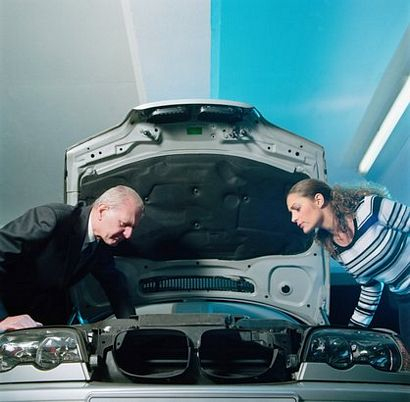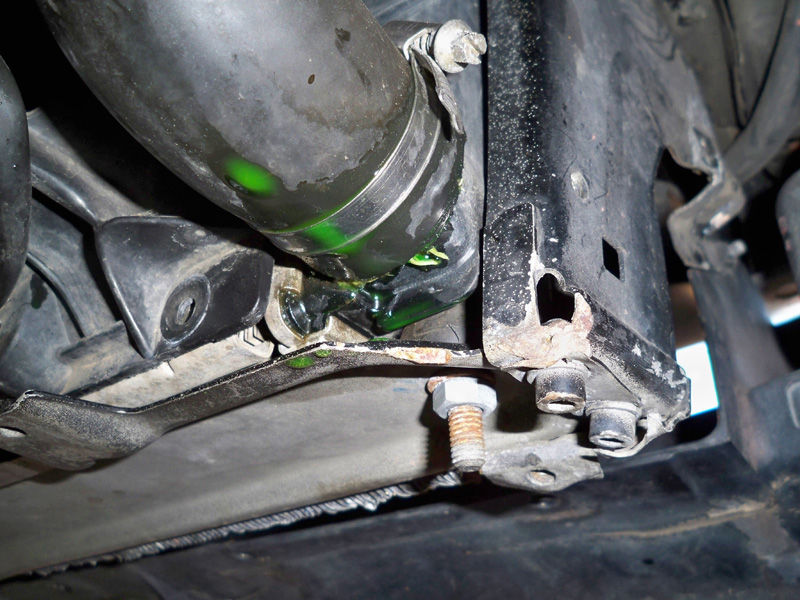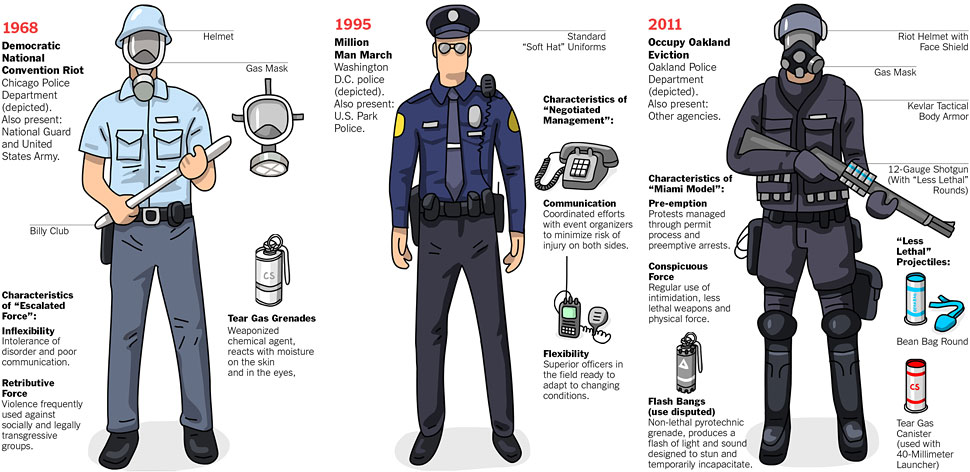You can guesstimate with some accuracy what might be wrong with your car just by using your nose. If you’re hip to what various smells suggest. Let’s have a look – or rather, a whiff!
* Rotten egg smell –
 This is indicative of a problem downstream – in your car’s exhaust system. The egg smell derives from sulfur, and is byproduct of the combustion process. To be precise, it is a byproduct of an overly rich air-fuel mixture, which in a modern car is often caused by a problem with the oxygen sensor located in the exhaust piping upstream from the catalytic converter.
This is indicative of a problem downstream – in your car’s exhaust system. The egg smell derives from sulfur, and is byproduct of the combustion process. To be precise, it is a byproduct of an overly rich air-fuel mixture, which in a modern car is often caused by a problem with the oxygen sensor located in the exhaust piping upstream from the catalytic converter.
 The O2 sensor samples the chemical composition of the exhaust gasses and sends a signal to the engine’s computer controller, which in turn maintains an optimum air-fuel mixture. But when the 02 sensor is not working properly, the result is sometimes too much fuel in the mix (a “rich” condition) and – in a car with a catalytic converter (which is every car made since 1975) – the result is often that stinky sulfurous smell.
The O2 sensor samples the chemical composition of the exhaust gasses and sends a signal to the engine’s computer controller, which in turn maintains an optimum air-fuel mixture. But when the 02 sensor is not working properly, the result is sometimes too much fuel in the mix (a “rich” condition) and – in a car with a catalytic converter (which is every car made since 1975) – the result is often that stinky sulfurous smell.
It’s important – if you want to avoid a big bill – to get the car checked out as soon as possible, because running it in this condition may cause the converter to overheat, which can result in the honeycomb lattice inside the converter to melt and fuse, creating excess backpressure – which will result in progressively worse performance and declining gas mileage.
Be advised that replacing just one tits up catalytic converter can cost a couple hundred bucks. And many new cars have two – or more – cats.
* A sickly sweet smell –
This is usually leaking (and sometimes, burning) anti-freeze, also known as engine coolant. The neon green (and in some cars, orange-red) fluid that goes in the radiator. This fluid is used to carry heat away from the engine and radiate the heat – via the radiator – to the surrounding air. It is also used to carry heat into the passenger compartment, to keep you warm in winter.
 Places to look for leaks include all the rubber hoses that plumb the radiator (at the front of the car, in most cars) to the engine. There are also hoses that (typically) run from the engine to the cowl area (just below the base of the windshield). These are the hoses (usually, two medium sized ones) that circulate warm engine coolant to the cabin, to provide heat.
Places to look for leaks include all the rubber hoses that plumb the radiator (at the front of the car, in most cars) to the engine. There are also hoses that (typically) run from the engine to the cowl area (just below the base of the windshield). These are the hoses (usually, two medium sized ones) that circulate warm engine coolant to the cabin, to provide heat.
The radiator itself is also a potential suspect.
Provided the leak is small – you usually have time to get the problem (such as a leaking hose) fixed before it leaves you stuck by the side of the road. But don’t ignore the problem – or it will eventually leave you stuck by the side of the road. Small leaks can become big ones, in part because your car’s cooling system is pressurized. Lose enough coolant and the car will overheat – and you’ll be calling AAA (NMA, if you’re Libertarian-minded!)
If you smell that sickly sweet coolant smell inside the car, consider it an emergency situation – because coolant is leaking from the heater into the passenger compartment and if not found an fixed, you’ll be dealing with an epic mess that might require ripping out and replacing the carpets. Just for starters. A leaking heater core can ruin your car, which will definitely ruin your day.
* Acrid, burnt smell –
This is typically one of two things (hopefully not both of them at the same time): Clutch – or brakes. It stands to reason that the smell is similar in both cases because the smell derives from the heating up (and burning up) of the friction material used in both.
Usually, context will provide the clue as to which of the two it is.
 If you’ve been “riding” the brakes (keeping consistent pressure on the brake pedal) to avoid over-speeding the car as you’re descending a steep grade and begin to smell that smell, it is probably your brakes. This tends to happen more often in automatic-equipped cars – whereas in a car with a manual transmission, you can gear down to limit the car’s speed. Of course, you can also gear down in an automatic-equipped car (move the selector one notch down from “Drive” – or depress the “overdrive off” button that most modern automatic-equipped cars have) but people sometimes just keep pressure on the brakes instead. Overheating the brakes – pads and rotors – can cause permanent damage, so try to avoid it by not riding the brakes.
If you’ve been “riding” the brakes (keeping consistent pressure on the brake pedal) to avoid over-speeding the car as you’re descending a steep grade and begin to smell that smell, it is probably your brakes. This tends to happen more often in automatic-equipped cars – whereas in a car with a manual transmission, you can gear down to limit the car’s speed. Of course, you can also gear down in an automatic-equipped car (move the selector one notch down from “Drive” – or depress the “overdrive off” button that most modern automatic-equipped cars have) but people sometimes just keep pressure on the brakes instead. Overheating the brakes – pads and rotors – can cause permanent damage, so try to avoid it by not riding the brakes.
Riding the clutch – keeping it partially engaged for too long, as beginner drivers just learning to work a stickshift often do – will also produce that funky acrid smell. It is the smell of the friction material going up in smoke – literally. If you do smell it, look out (as OJ used to say). It’s the smell of trouble headed your way.
Concerned you’ve cooked the clutch?
There’s an easy way to know for sure: At about 25 or 30 MPH, with the transmission in a higher gear (fourth or fifth in a car with a five speed manual) floor the accelerator. If the clutch is toasted, it will slip – and you will know it. The engine speed will increase noticeably as you press down on the accelerator – but the car’s speed will not increase along with it. And you will probably smell that smell.
Time to see The Man.
* Moldy, musty smell –
This one means moisture. Water . . . inside the car. Water that’s been inside the car for long enough to grow things. Like mold. This is very bad news. It means the car leaks. Or – much, much worse – it has been playing U-boat.
Flood-damaged cars can often be sussed out by their smell. But you might not smell the moldy smell – because it’s been covered up by odor-maskers such as Febreze (or similar). If you are checking out a used car and it reeks of being spray-bombed with something, the seller might be up to something. Touch the carpets with your bare hand, especially the areas up above the footwells. If you feel any dampness, run – do not walk – away from that car. Ditto water stains on the door panels, or rust-covered fasteners inside the passenger compartment. If the car is older and the carpets/seats are new, find out why. It could just be the owner wanted to fix ratty carpets and seats to make the car more appealing.
But it could be something much worse.
Throw it in the Woods?
Spread it via Twitter: LibertarianCarG (they would not let me have “guy”).
And:
We depend on you to keep the wheels turning. If you value alternatives to the MSM, please support independent media. Our donate button is here.
For those not Pay Pal-inclined, you can mail us at the following:
EPautos
721 Hummingbird Lane SE
Copper Hill, VA 24079











Thanks to a poorly-fixed engine bay after a run-in with a deer years ago, I got a small leak in my radiator. Garage told me a new one would run me $400 because original was half-plastic, so couldn’t be fixed. I bought and used a product made of finely ground aluminum added to a cold radiator… Worked like a charm, just had to repeat each time I changed the coolant after that. I only used maybe a teaspoon full each time, and still have about l/2 the original bottle left, thanks to switching to 5yr antifreeze. I drove that car 27 yrs… 20 of which came *after* the deer incident (It’s a manual-tranny Taurus I bought the year they first came out, and I still have it, garaged but no longer driven — for now).
Now I’m getting a coolant smell in the cabin of the RAV-4 I got to replace it, and fear it could be a major problem. I replaced the cabin air filter so it’s not that.. It’s not a strong smell, and it dissipates fairly quickly as I drive. It starts up a few miles after I begin driving, usually with the heat *or* a/c on. There’s no smell if I just use vents. I usually use the recycle switch for air; the owner’s manual says that habit itself can result in odd cabin smells, so… ?
This Winter (a month ago) my front windows fogged as I drove, and *that* lasted longer than the odor, which got me interested in Dx’ing it. If it’s a big repair, I’d like to get it repaired while there’s still a warranty on it.
Hi DRB,
If you’re smelling coolant inside the car there is almost certainly coolant leaking into the cabin (or into the AC/heat ducting). If I were you and the car is under warranty I would immediately take it in. Minimally, you will have established a complaint during the warranty period – critical if the problem is not found/fixed now but is found later, after the warranty expires.
Please keep us posted!
Heater core issue most likely. The windows fogging and the smell are classic leaking heater core symptoms. You want that done under warranty as it’s usually a painful job in any car to get at the heater core. Often considerable dismantling of the dash and HVAC system.
Cheap black pepper will temporarily plug tiny antifreeze leaks as well. If the rotten egg smell is coming from under your hood, then your battery is probably shorting out internally. You can verify this by first placing your hand just barely above the battery if it appears safe to do so..ie..not smoking. If you don’t feel heat then touch the battery. If the battery is pretty hot, then you know that it needs to be replaced pronto. If the battery is smoking, then get the hell away from there and grab a fire extinguisher! The battery will soon die if it doesn’t catch on fire.
Older diesel vehicles may spring fuel leaks everywhere o-rings have been used as seals as my 2000 F-350 7.3 had done a year ago. This modern sulfur-free diesel eats up standard o-rings, so you might as well replace all of them with a replacement o-ring kit and fuel filter gasket designed for modern diesel. Thanks Uncle Sam! That repair would have cost me hundreds of dollars in labor costs above the $200 parts cost had I not been mechanically inclined!
Dont forget the “magic smoke” that exists inside all electronic devices! (like your radio) When the magic smoke leaks out, the electronics stop working!
Re: Rotten Egg Smell – Tell that to the wife who drove ~100 miles with a dead plug coil on one of the spark plugs, dumping unburned fuel into the cat for subsequent burning. She gets home and tells me, “There’s something seriously wrong with your car.”
Re: A sickly sweet smell – Ahh, the smell of waffles when you turn on the heat.
-CW
There’s another smell that spells trouble: Gasoline/diesel fuel. If your car smells like a gas station, and you’re nowhere near a gas station, that smell means you have a leak in your fuel system. Combined with the high pressure today’s fuel systems operate under, leaks can mean your car becomes a prop in a Michael Bay movie.
Check your carburetor (if your car has one) / fuel injection rails, injectors and rubber lines. If your car has its filter under the hood, check that too. If you’ve a mind to, look at the lines under your car (your filter may be there too) and your gas tank. If you see a leak, get it fixed right away. If it’s really bad, like fuel dripping on the ground, DO NOT drive your car!
Fuel odors can also mean a problem with your car’s emission system that captures fuel vapors. Like the rotten egg smell, that can lead to big expensive repairs down the road if not fixed.
My old Grand AM had the anti-freeze leak smell, but it turned out to be an intake manifold gasket that had failed. It was close to the AC vent and when the engine got hot it would boil off. I didn’t see it because of the stupid “under hood” on the engine, so I had a pressure test done on the radiator and heater core (which passed). The mechanic recognized the problem right away, apparently DEX-COOL will eat away gaskets over time.
EG, this may sound too good to be true but I’ve used Bar’s Leak to fix head gasket leaks as well as heater core leaks. My ’82 454 pickup started fouling the windshield one cold day so I just threw some in, not expecting complete success but I never had that core leak again nor anything else on the truck. I had a big 4WD diesel tractor that was eating coolant. Turned out it was cracks in the heads. I tore it down but the cracks are supposedly very difficult to fix on those heads. I steamed the heads, put them back on and used Bar’s Leak and never had to add coolant again. There actually is a guaranteed product for head leaks but I can’t recall the name. It’s expensive but well worth it if it’s an eminent engine tear down.